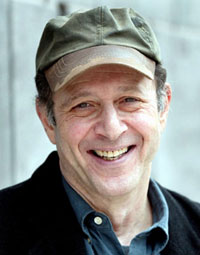Best Books of 2005 - Music

Writings on Music by Steve Reich
If you are not a Steve Reich fan (see my personal profile) or are simply unfamiliar with him, I apologize for this entry being a bit arcane. Reich is, in my opinion, one of the most significant composers of the past fifty years. He is often compared with Philip Glass, whose music bears a somewhat superificial similarity with Reich's in that both are 'minimalists' who rely upon slow, small changes in texture rather than clear traditional musical materials like melody and harmony. Whereas I personally find Glass' music to be simplistic and cloying, I find Reich's to be intellecutally and musically stimulating. So I was very pleased to discover an updated collection of his writings, in which he describes the underpinnning theory of his work.
If this dependence on theory sounds off-putting, let me note two things aboiut his approach to set you more at ease. First of all, the goal of the slowly changing textures is normally to allow the untrained listener the opportunity to grasp (at least intuitively) the underlying process and so to engage the intellect in a way not often done in modern music. Contrast this, for example, with twelve-tone composers insisting that listeners train themselves to hear permutations of a series of discordant pitches--now that's sophistry.
Secondly, Reich (like my own teacher Easley Blackwood) openly proclaims that he writes music to please others. Mind you, this is not a sell-out: any good composer knows that his music should move people or else he's not a good composer. Unfortunately, too much modern academic music works hard to produce unpleasant music on purpose and then blames the listener for lack of refinement if they don't like it. "The Empreror' New Clothes" comes to mind.
In any case, if you are unfamiliar with Reich, this book won't interest that much, though there are bits and pieces that are worth reading. One of my favorite quotes is that if a child thinks something sounds bad, then the composer needs to start worrying.
Another very interesting theme throughout is Reich's midlife rediscovery of his Jewish roots. Since his wonderful 1980's composition Tehillim ("Psalms" or more literally, "Praises"), he has openly explored religious music and traditional ways of declaiming it. This brought him to a study of Jewish cantorial method, a too-often overlooked form of religious music, closely related to Gregorian chant.
If this doesn't sound appealling, let me direct you to my honorable mention:
Beethoven's Ninth: A Political History by Esteban Buch.
In recent years, I have reluctantly come to the conclusion that all music is political, that the music we choose to perform embodies the cosmos and social world that we desire. Here is a wonderful exploration of the growth of European self-awareness in the nineteenth and twentieth centuries with Beethoven's "Choral Symphony" as the cultural touchstone. Beethoven happens to be my favorite modern composer (that qualification 'modern' saves me from having to choose between him and Josquin), but the Ninth has never even been close to my favorite piece. It might well be my least favorite symphony. Reading Buch helps me to see that in part I am reacting against the prejudices formed out of the political uses and abuses of this revolutionary work.
Freude schoene Gotterfunken!

No comments:
Post a Comment